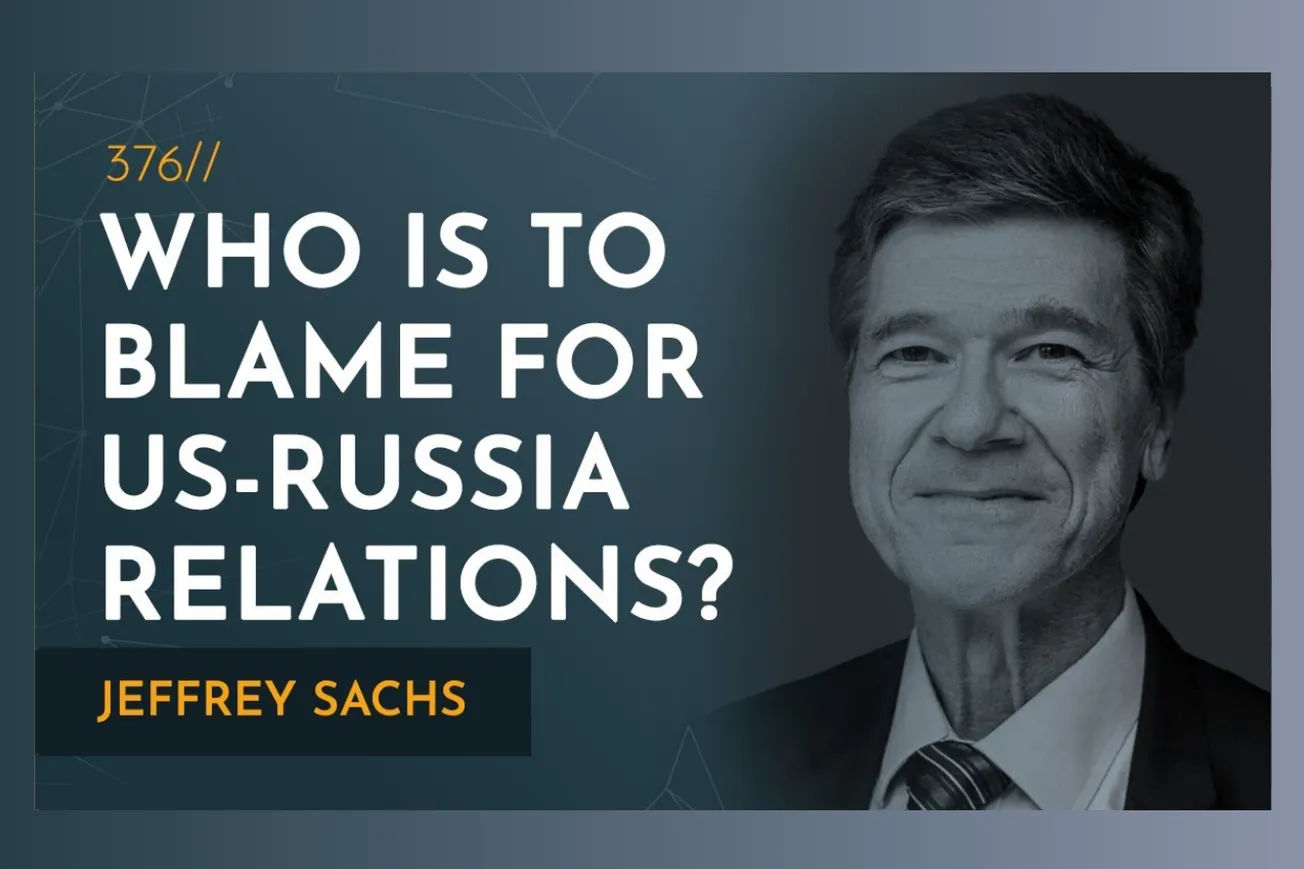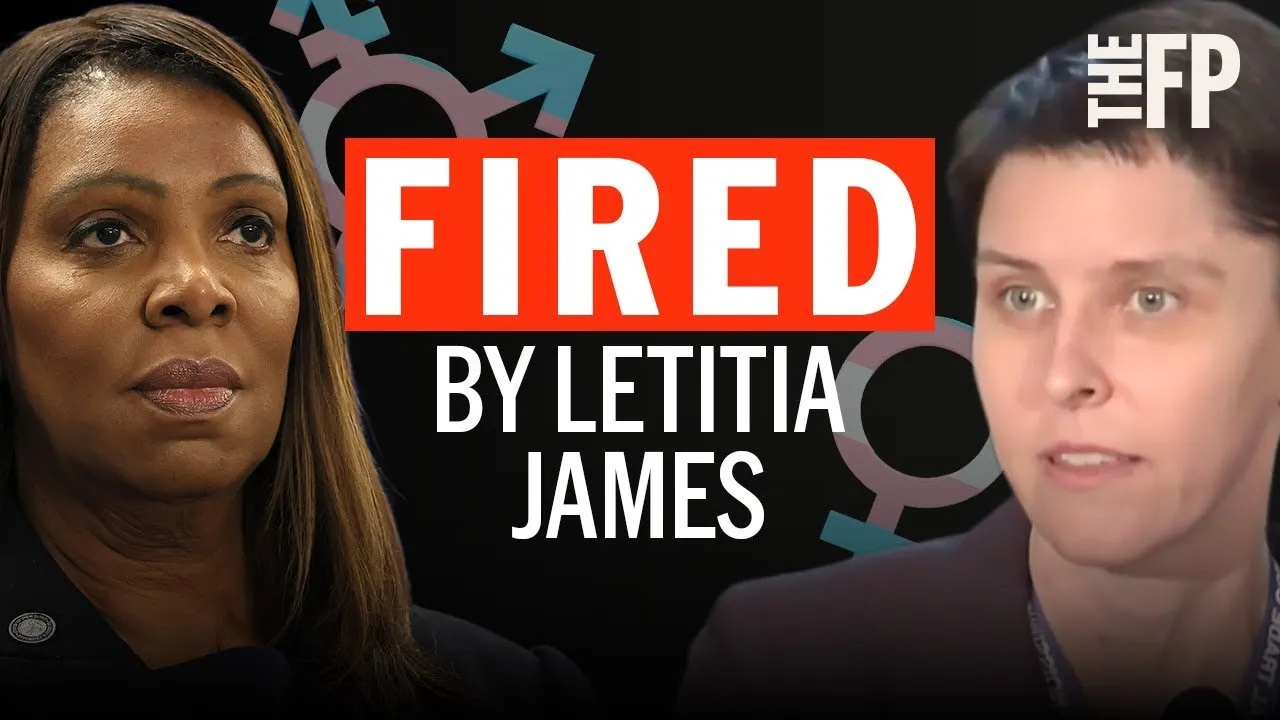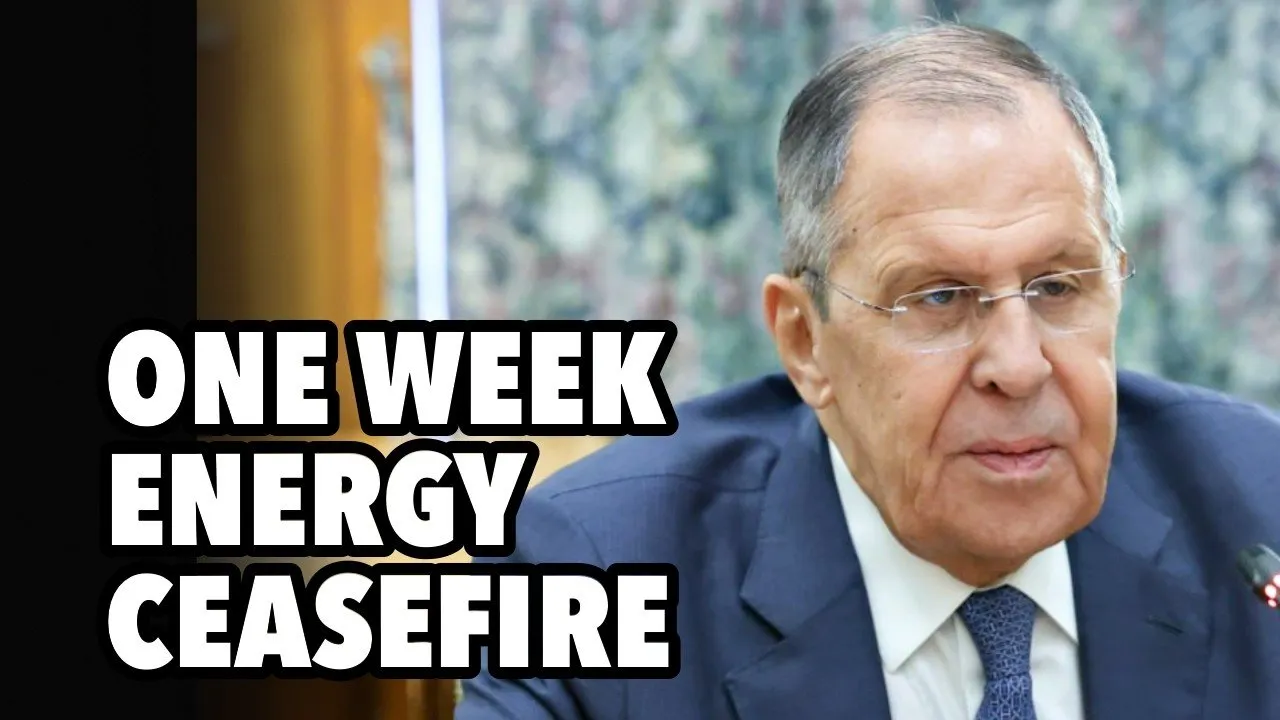Table of Contents
Jeffrey Sachs argues that American "deep state" policies of NATO enlargement and military dominance created the current confrontation with Russia, advocating for cooperative multipolarity over tragic great power competition.
Prominent economist Jeffrey Sachs presents a comprehensive critique of US foreign policy since the Cold War, blaming American hegemonic ambitions for creating unnecessary conflicts with Russia and China.
Key Takeaways
- Sachs advocates cooperative international relations over Mearsheimer's "tragic" structural realism that views great power conflict as inevitable
- NATO enlargement beginning in the 1990s represents the foundational error that poisoned US-Russia relations and led to current Ukraine crisis
- The "deep state" or national security apparatus has pursued consistent hegemonic policies across multiple administrations since 1991
- America's approach to China and Russia demonstrates how US actions shape adversarial relationships rather than responding to inevitable threats
- Nuclear weapons and global challenges require cooperative solutions that make traditional great power competition obsolete
- Trump avoided new wars but solved no existing problems, while Biden has continued destructive confrontational policies
- A multipolar world with regional security arrangements offers the best path forward for global stability and prosperity
- Buffer zones and mutual restraint between major powers could prevent the escalatory dynamics that lead to dangerous confrontations
- Economic integration and positive-sum thinking provide alternatives to zero-sum competition for global dominance
Timeline Overview
- 00:00–18:30 — Idealist versus Realist Worldviews: Sachs explains his belief in international cooperation as achievable and necessary, contrasting with Mearsheimer's tragic realism
- 18:30–35:20 — The Unipolar Moment and Its Consequences: How the 1991 Soviet collapse led to American hegemonic thinking and the decision to expand NATO eastward
- 35:20–52:45 — NATO Enlargement Timeline: From the 1994-95 Clinton administration debates through multiple waves of expansion toward Russia's borders
- 52:45–70:15 — The Escalatory Sequence: Belgrade bombing, ABM Treaty withdrawal, Iraq invasion, and the 2004 Baltic expansion as mounting provocations
- 70:15–88:30 — Counterfactual Analysis: Why accommodation toward Russia might have succeeded where similar approaches to China allegedly failed
- 88:30–105:45 — Military Power and Its Limits: Discussion of defense spending, overseas bases, and the overestimation of what military force can achieve
- 105:45–END — Vision for Multipolarity: Sachs outlines his preferred world order of regional powers cooperating through mutual respect and buffer zones
Cooperative Idealism Versus Structural Realism: The Fundamental Divide
Can international cooperation overcome structural incentives for great power competition, or does idealism ignore harsh geopolitical realities?
- Sachs positions himself against John Mearsheimer's structural realism, arguing that cooperation is both possible and essential given nuclear weapons, climate change, and global interconnectedness that make traditional great power competition obsolete.
- His worldview emphasizes positive-sum economic relationships, exemplified by his belief that China's rise benefits rather than threatens American prosperity through increased trade opportunities and global innovation.
- The disagreement centers on whether great power conflict stems from inevitable structural forces (anarchic international system, security dilemmas) or from specific policy choices that create self-fulfilling prophecies of hostility.
- Sachs acknowledges Mearsheimer's predictive success on both Ukraine and China while rejecting the deterministic implications, arguing that different American policies could have produced different outcomes.
- However, Sachs may underestimate how structural factors—geographical vulnerability, historical experiences, domestic political pressures—constrain policy choices and create recurring patterns across different leaders and administrations.
- The cooperative framework assumes other major powers share similar preferences for peaceful competition and institutional constraints, which may not reflect the actual motivations and threat perceptions of countries like Russia and China.
The NATO Enlargement Critique: Foundational Error or Necessary Insurance?
Did NATO expansion create Russian hostility or provide essential security for vulnerable nations facing an inevitably resurgent Russia?
- Sachs identifies the 1994-95 Clinton administration decision to expand NATO rather than dissolve it, welcome Russia, or emphasize the OSCE as the critical choice that set America on a collision course with Russia.
- He cites George Kennan's 1997 warning about the "most consequential error of the post-Cold War period" and Bill Perry's near-resignation over the policy as evidence that knowledgeable experts predicted the current outcome.
- The argument emphasizes how NATO expansion violated the "spirit" of 1990 discussions about German reunification, even if no formal commitments were made, creating Russian resentment that poisoned subsequent relations.
- However, the critique may minimize legitimate security concerns of Eastern European nations with historical experience of Russian domination and their agency in seeking NATO membership for protection.
- The counterfactual assumes Russia would have remained cooperative and democratic rather than becoming increasingly authoritarian and revisionist under Putin regardless of Western policies.
- Alternative explanations suggest that Russian opposition to NATO expansion reflected not security concerns but desire to maintain a sphere of influence over former Soviet territories incompatible with those countries' sovereignty.
The Escalatory Sequence: Accumulating Provocations or Appropriate Responses?
Do US actions from 1999-2008 represent a pattern of unnecessary provocations or reasonable responses to evolving security challenges?
- Sachs presents a detailed timeline: 1999 Belgrade bombing, 2002 ABM Treaty withdrawal, 2003 Iraq invasion, and 2004 Baltic NATO expansion as cumulative provocations that pushed Russia toward confrontation.
- Each action is framed as American unilateralism that violated Russian interests or international law, creating a pattern that convinced Russia that cooperation was futile and resistance necessary.
- The 2008 Bill Burns memo warning that Ukrainian NATO membership was "neuralgic" for Russia is cited as evidence that American officials understood the risks but proceeded anyway.
- However, this narrative may minimize Russian agency and responsibility—for example, the Belgrade bombing occurred in response to Serbian ethnic cleansing, not as gratuitous aggression against Russian interests.
- The timeline also omits Russian actions during this period, such as the 2006 gas cutoffs to Ukraine, increasing authoritarianism, and opposition to democratic movements in former Soviet states.
- An alternative interpretation suggests that Russian resistance to these policies reflected not security concerns but objections to losing imperial control over neighboring countries and global influence.
The China Comparison: Why Different Approaches Yielded Similar Results
Does America's accommodating approach to China's rise disprove the theory that confrontational policies create adversarial relationships?
- Kofinas challenges Sachs by noting that despite welcoming China into the WTO and treating it as a strategic partner, the US-China relationship still deteriorated into competition and mutual suspicion.
- Sachs responds that China was treated differently because it was perceived as weak and non-threatening in the 1990s, while Russia was seen as a potential competitor requiring containment even in its weakened state.
- The argument suggests that American policy toward China shifted to confrontation around 2014 when China's technological and military capabilities became apparent, creating the adversarial relationship that now exists.
- However, this explanation may minimize Chinese agency in the relationship's deterioration—Beijing's assertiveness in the South China Sea, technology transfer demands, and military buildup preceded American policy shifts.
- The comparison also ignores how China's authoritarian system and historical grievances about Western dominance created structural incentives for competition regardless of American accommodation.
- Both cases may support Mearsheimer's structural realist thesis that rising powers inevitably challenge existing hegemonies, with policy approaches affecting timing and intensity but not fundamental dynamics.
Military Power and Its Limitations: The Overreach Thesis
Has American military dominance created more problems than it solved, and would a smaller footprint improve global stability?
- Sachs argues that America's 750-800 overseas military bases represent excessive global presence that provokes rather than deters conflict, suggesting regional security arrangements could provide stability more effectively.
- The critique emphasizes how military solutions consistently fail to achieve political objectives, citing Iraq, Afghanistan, Libya, and Syria as examples of tactical victories that became strategic disasters.
- His analysis suggests that the "deep state" or national security establishment has institutional incentives to maintain global military engagement regardless of outcomes or costs.
- The $5 trillion spent on post-9/11 wars could have funded development, infrastructure, or other approaches that might have achieved better results at lower cost and risk.
- However, this analysis may underestimate the stabilizing role American military presence plays in preventing conflicts between allies, deterring aggression, and maintaining open sea lanes for global commerce.
- The regional security alternative assumes that other powers would fill security vacuums responsibly rather than exploiting American withdrawal to settle scores or expand influence in destabilizing ways.
The Deep State Consistency Thesis: Institutional Momentum or Democratic Choice?
Do American foreign policy patterns reflect undemocratic deep state control or consistent elite preferences across administrations?
- Sachs argues that policies like NATO expansion, military base maintenance, and confrontational approaches toward rivals represent "deep state" rather than democratic decision-making, continuing across different presidents and parties.
- The 1992 Defense Planning Guidance, 1997 Brzezinski strategy documents, and 2001 PNAC publications are cited as evidence for long-term elite consensus around maintaining American primacy.
- This institutional continuity allegedly explains why presidents from Clinton through Biden have pursued similar approaches despite campaign promises of change or different party affiliations.
- However, the "deep state" explanation may minimize the role of democratic processes, interest group politics, and genuine policy debates within American decision-making structures.
- Alternative explanations suggest that similar policies reflect shared threat assessments, alliance commitments, and strategic logic rather than conspiratorial control by unelected officials.
- The framework also risks absolving elected officials of responsibility for foreign policy choices by attributing outcomes to shadowy institutional forces rather than democratic accountability.
Trump Assessment: Peaceful Incompetence or Missed Opportunities?
Does Trump's avoidance of new wars outweigh his failure to resolve existing conflicts and questionable personnel choices?
- Sachs gives Trump credit for not launching new military interventions while criticizing his appointment of officials like John Bolton and failure to solve any existing international problems.
- The mixed assessment reflects tensions between appreciating restraint and recognizing missed opportunities to improve relations with adversaries during a period when such efforts might have succeeded.
- Trump's personnel choices are seen as reflecting ignorance about foreign policy rather than deliberate decisions, suggesting the problems stem from incompetence rather than malicious intent.
- However, this evaluation may minimize how Trump's unpredictability and transactional approach actually damaged relationships with allies and undermined institutional approaches to conflict resolution.
- The "no new wars" metric also ignores how Trump's withdrawal from arms control agreements, assassination of foreign officials, and trade wars created new sources of international tension.
- A more complete assessment might weigh the benefits of reduced military intervention against the costs of institutional damage and increased global instability.
Vision for Multipolarity: Regional Arrangements and Buffer Zones
Can a multipolar world order based on regional security arrangements and mutual restraint provide stability superior to American hegemony?
- Sachs envisions major powers (US, China, Russia, India) cooperating through regional organizations while maintaining buffer zones and avoiding provocative military deployments near each other's borders.
- The proposal emphasizes positive-sum economic relationships, arms control agreements, and institutional mechanisms for managing disputes peacefully rather than through military competition.
- Kennedy's 1963 peace speech is invoked to support the argument that "there are no permanent enemies" and that flexibility can transform adversarial relationships into cooperative ones.
- This vision assumes that other major powers share American preferences for economic development over territorial expansion and would reciprocate restraint rather than exploit it.
- However, the multipolar stability thesis may ignore how competing spheres of influence create friction, how arms races emerge from security dilemmas, and how domestic politics constrain cooperative impulses.
- Historical precedents for stable multipolarity are limited, with most such systems eventually breaking down into conflict when the distribution of power shifts or crisis management fails.
Common Questions
Q: Does Sachs' critique of NATO enlargement adequately account for Eastern European agency and legitimate security concerns?
A: His focus on American decision-making may minimize how countries like Poland and the Baltics actively sought NATO membership based on historical experiences with Russian domination.
Q: If accommodation didn't work with China despite welcoming its rise, why would it have worked with Russia?
A: Sachs argues Russia was treated as a threat from the beginning while China wasn't, but this may ignore how both countries' domestic systems and strategic cultures predisposed them toward competition.
Q: Is the "deep state" explanation for foreign policy continuity more convincing than democratic elite consensus?
A: The institutional momentum thesis has merit, but may overstate bureaucratic control relative to elected officials' genuine policy preferences and democratic processes.
Q: Would reducing American military presence abroad improve global stability or create power vacuums?
A: Regional security arrangements might work in some contexts, but historical precedents suggest that power vacuums often lead to instability rather than peaceful self-organization.
Q: Can Sachs' multipolar vision work without addressing how domestic political systems affect international cooperation?
A: His emphasis on economic cooperation may underestimate how authoritarian systems and nationalist ideologies create structural obstacles to the flexibility he advocates.
Conclusion
Jeffrey Sachs presents a comprehensive critique of American foreign policy that identifies genuine problems with post-Cold War approaches to Russia and global engagement. His emphasis on the costs of military overextension, the self-fulfilling nature of adversarial relationships, and the need for cooperative solutions to global challenges offers valuable correctives to purely confrontational approaches.
The detailed timeline of NATO expansion and other policies that exacerbated tensions with Russia demonstrates how specific decisions contributed to current conflicts. However, his framework may overstate American agency while understating the role of other countries' strategic choices, domestic political systems, and structural factors that create recurring patterns of great power competition.
The critique also risks minimizing legitimate security concerns of smaller nations and the stabilizing role that American power has played in maintaining global order, even while acknowledging its costs and limitations. His vision for cooperative multipolarity offers an appealing alternative but may not adequately address the historical challenges of managing competitive relationships between major powers with different values and strategic objectives.
Practical Implications
• Recognize that adversarial relationships often involve mutual responsibility rather than one-sided causation
• Consider how military presence and alliance commitments can both deter aggression and provoke countermeasures
• Understand that accommodation toward rising powers may reduce tensions without eliminating structural sources of competition •
Evaluate "deep state" explanations against alternative theories of institutional continuity and democratic choice
• Assess buffer zone proposals for their feasibility given modern military technology and alliance commitments
• Balance idealist goals of international cooperation with realist awareness of power competition and security dilemmas
• Examine how domestic political systems affect countries' ability to engage in flexible international cooperation
• Consider regional security arrangements as complements to rather than replacements for global institutions
• Weigh the costs of military overextension against the risks of power vacuums in critical regions





